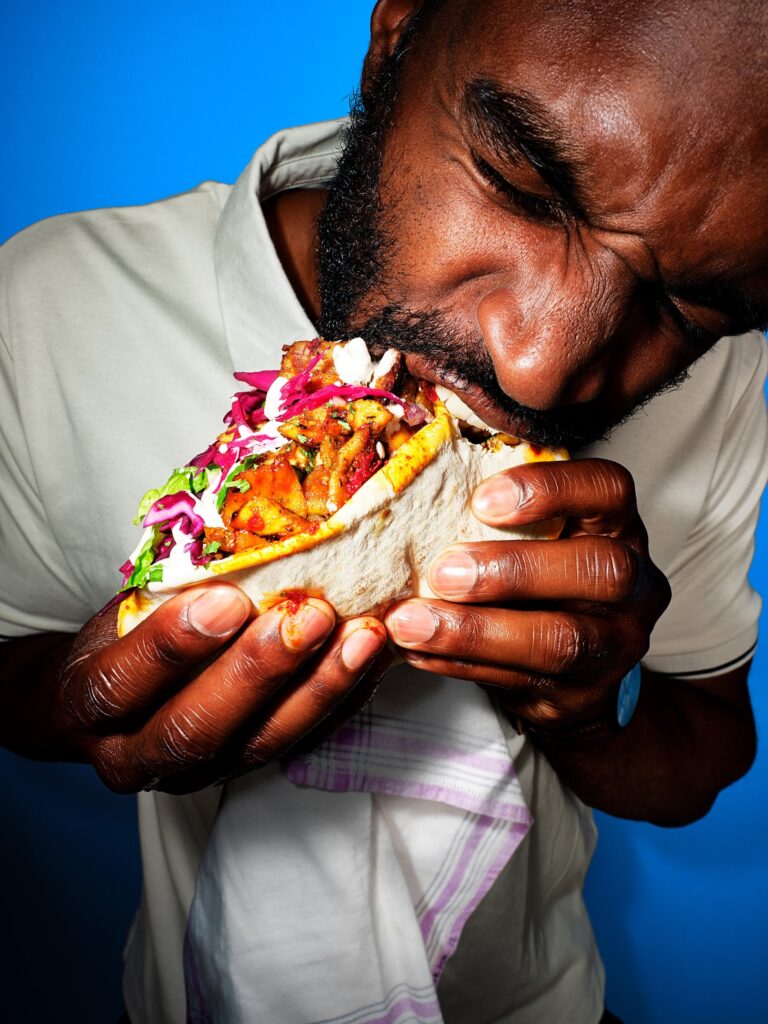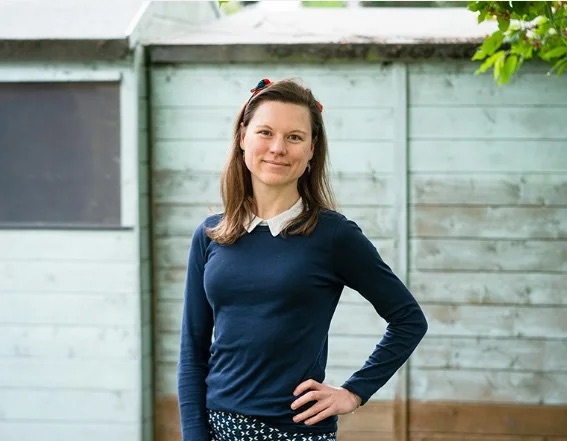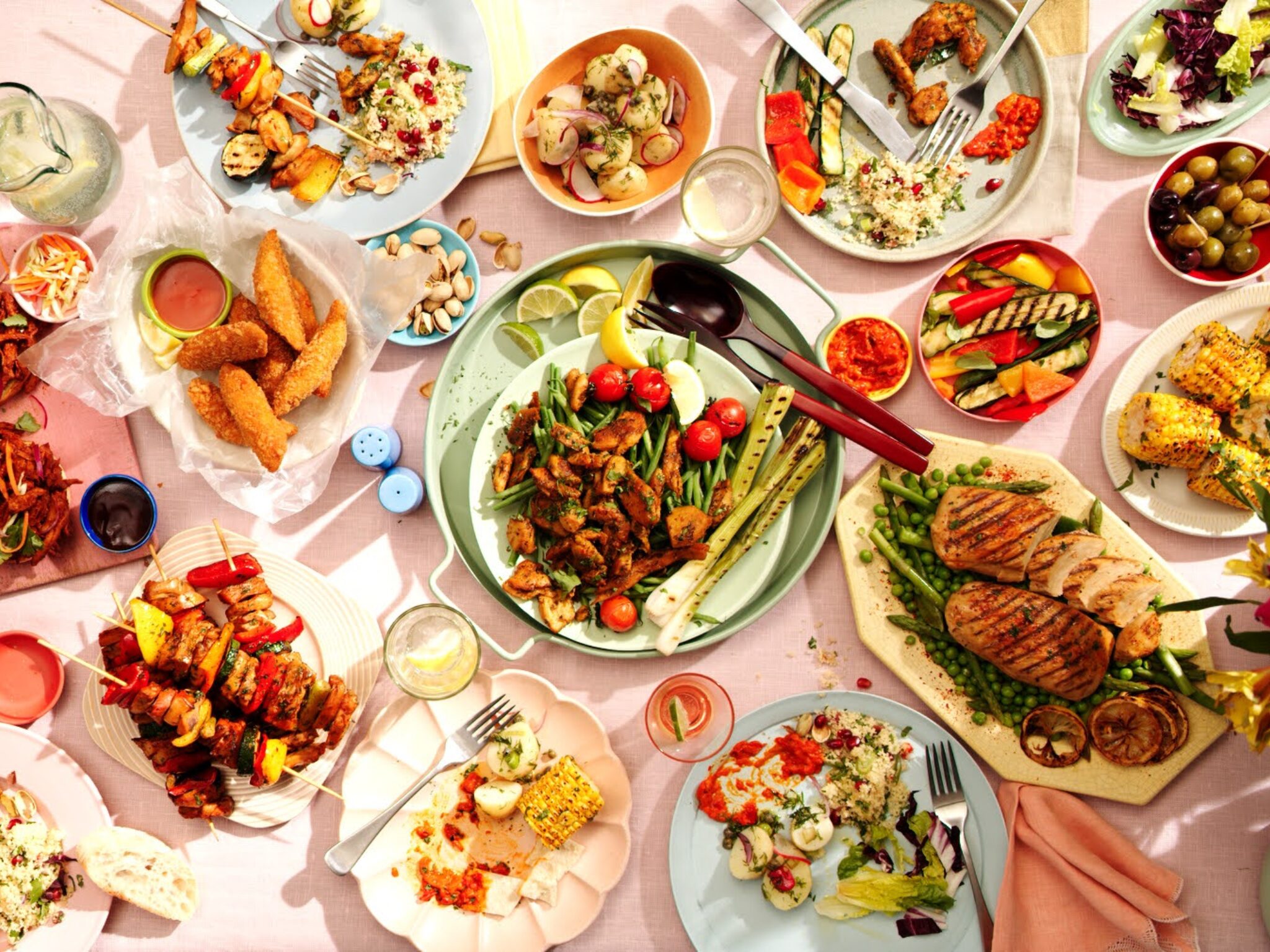Q&A with Churchill Fellow Jenny Chapman: ‘We Need to Stop Using the Term ‘Ultra-Processed’ in Nutrition’
9 Mins Read
Ultra-processed foods aren’t all bad – and we need to stop using that term when we’re talking about nutrition, according to a new report into health and sustainability.
Scientists should stop using the term ‘ultra-processed’ to describe the health credentials of food, a new report into nutrition and sustainability suggests.
Titled ‘Processing the discourse over plant-based meat’, the report highlights how the idea of ultra-processing has been bundled together with what constitutes as a healthy food, despite the term having a broader meaning and many ultra-processed foods (UPFs) being actually healthy, as well as climate-friendly.
Authored by food systems researcher and Churchill Fellow Jenny Chapman, the study deep-dives into the discourse around vegan meat alternatives, which have often been criticised for their ingredient lists and ‘overprocessed’ nature. But unlike most UPFs – especially processed red meats – these products are usually rich in fibre, low in saturated fat, sugar and calories, and free of cholesterol.
The report argues how these processed plant-based meats are much more sustainable than their conventional processed counterparts, but they’re deemed unsafe or unhealthy due to the UPF tag. The term ‘UPF’ first appeared as part of the Nova classification, which categorised food into four subgroups: unprocessed/minimally processed foods, processed culinary ingredients, processed foods, and UPFs.
The latter comprised industrial formulations and techniques like extrusion or pre-frying, combined with cosmetic additives and substances of little culinary use, like high-fructose corn syrup, hydrogenated oils or modified starch. Most ice creams, cereals, flavoured yoghurts, and plant-based meats all fall into this category.

Chapman argues that the Nova classification – which was established in 2009 – was developed as part of a sociopolitical framework to identify factory-made foods by large manufacturers, rather than to group foods based on nutrients they contain. However, since the beginning, this categorisation of food has been misused “as a proxy for how healthy a food is”, instead of being a way to describe how it was manufactured.
The report calls on stakeholder bodies like Public Health England, the NHS, the Food Standards Agency, the UN FAO and the Pan American Health Organization to stop using the term ‘ultra-processed’ and promote foods that are healthier and more climate-friendly, irrespective of their degree of processing. It suggests that experts and policymakers establish an interdisciplinary working group to tackle misinformation around UPFs and establish guidelines around the use of language that normalises the consumption of plant-based meat.
Supermarkets, food companies, and the media should increase familiarity around and develop trust towards alt-meat, whole health professionals, chefs and the government are advised to develop or participate in training programmes for plant-based meats, evidence-based nutrition, and sustainable diets. The report also calls on schools to educate students children via trips to farms, food processing facilities and slaughterhouses.
Finally, Chapman advocates for greater investment by governments and charities in R&D to provide consumers with healthier, more sustainable and cheaper food – these finances should be directed to plant-based diets, instead of nutrition science that uses the Nova classification.
We spoke to Chapman about the ideas behind the report, the widespread use of UPFs, and how she expects the recommendations to pan out.
This interview has been edited for clarity and concision.
Green Queen: Why do you think people began looking at plant-based meat as unhealthy UPFs?
Jenny Chapman: Well, firstly, these products aren’t unhealthy when you compare them to the products they intend to replace in the diet. Yes, a plant-based burger is an indulgent product… so we shouldn’t be comparing it to a bowl of salad. However, plant-based meats are healthier than the processed conventional meat products they intend to replace in the diet. It’s essential to communicate this nuance.
Secondly, there are plenty of UPFs that are very healthy! The UPF category was never intended to group foods on the basis of nutrition, so it’s completely understandable that the category encompasses a wide variety of healthy and unhealthy foods, from crisps and chocolate, to infant formula, B12-rich oat milk and high-fibre plant-based meat.
Undeniably, some campaigns have deliberately chosen to make a link between plant-based meat and the term ‘ultra-processed’. Their communications suggest – incorrectly – that the term ‘UPF’ is a synonym for ‘unhealthy’. These campaigns play into concerns some people have around foods that are new – often called ‘food neophobia‘… Some campaigns really hone in on this, by using words like ‘fake’ and ‘unnatural’ to describe plant-based meats (which are safe, nutritious foods)
Of course, plenty of things that are ‘natural’ are very unhealthy – deadly mushroom species, for example – but the naturalistic fallacy is still very powerful. It also relies on the incorrect assumption that conventional meat is ‘natural’ – when it’s often anything but.

GQ: What would you say to people who are opposed to educating their kids by exposing them to slaughterhouses?
JC: My recommendation is that students visit all parts of our modern food system, from arable and pastoral farms to factory farms, food processing facilities, abattoirs and packing facilities. This is essential to help our young people understand our modern food system.
As for the specific concern about abattoirs, I’d chat with these people to better understand their worries. As a former biology teacher, I’ve had many, many of these conversations with parents and students before. For example, during lessons where dissections were taking place, I’d always take some time before to communicate the scientific reasons we were doing the activity, discuss the ethical considerations and talk individually to anyone who was unsure about taking part.
Visits to abattoirs are commonplace in Denmark. Horsens is an abattoir that slaughters 100,000 pigs every week, and many of their pork products end up in UK supermarkets. Horsens has a viewing gallery that welcomes school groups and members of the public – you see the whole process, from slaughtering the live animals to deboning the carcasses. It’d be great to see UK abattoirs follow suit.
GQ: How else can schools provide practical education to children on this subject?
JC: I think it’s really key to equip students with the tools to understand scientific studies – and nutrition studies in particular – as they are notoriously difficult to conduct. Students should be taught the difference between cohort studies and randomised control trials in nutrition, learn to critique experimental design, and learn how these sorts of stories are reported – sometimes inaccurately – by the media. This sort of scientific and media literacy is essential in all parts of life, not just where food is concerned.
We also need to ensure young people know what a healthy diet looks like and where they can find accurate, unbiased information about diet and health. Education materials need to be updated to show that it’s possible to eat a balanced diet that contains no or small amounts of animal products. Current textbooks suggest that meat, eggs and milk are essential for health – this is outdated information. And we must approach all of this with a clear understanding of safeguarding: any conversations around food need to happen with an awareness of disordered eating patterns.
Lastly, it’s essential we teach young people to cook healthy and sustainable meals – everything from how to soak and cook lentils to how to make a tasty spaghetti bolognese with soy mince. Schools are where children eat one or sometimes two of their meals during the week, and eating habits can be set for life. Providing healthier and more sustainable school food in canteens is also a part of this holistic education.

GQ: If we stop using the term ‘UPFs’, what do you think is a better model to classify food products?
JC: It depends on what we value and what information you want to capture. There are so many different ways we could classify food – it’s so incredibly diverse.
The UPF category works well if you want to know if a food is made in a factory – that’s what it was designed to do. The reality, however, is that it’s not being used in that way. When someone says that a food is UPF, I always ask them what they mean by that and I found during my research the plethora of different reasons people value food.
Some consumers are concerned about plastic packaging, others worry about the water and pesticide use during production, others want to know about allergens that are present. This means different people have their own unique models of food classification (for example, “this is wrapped in plastic, but this isn’t”) that are very personal to them. Often these concerns are bundled into the same term: UPF.
Obviously, nutrition is a really important part of food for everyone. We already have excellent nutrient profiling models that tell you what is in a food. I love the traffic-light labels system we have in the UK, where I live. It’s clear and informative.
Something that I’ve noticed in the UPF debate is that people are really concerned about fibre and how quickly different foods ‘spike’ your blood sugar (often referred to as the glycaemic index or GI). I’d love to see this be talked about more, and the fibre content of foods highlighted. Communication around GI is trickier, because it depends on what you eat a food product alongside, but I think it would be useful information to have for consumers who are interested.
GQ: Do you believe the UN Food and Agriculture Organization (FAO) could realistically stop using the Nova classification?
JC: Carlos Monteiro developed the Nova classification to group foods by their degree of processing and formulation, whilst also considering how they are packaged and advertised, and how profitable they are.
I don’t think the FAO should stop using the Nova classification altogether. I think it’s an excellent classification scheme if you’re a sociopolitical scientist interested in where food is made. My concern – and one I share with many others – is that it has been incorrectly used in nutrition science. I absolutely think the FAO can and should immediately stop using the Nova classification in documents relating to nutrition when we have a suite of excellent nutrient profile models that accurately capture the nutritional value of foods.
It makes no sense to use a subjective, non-scientific sociopolitical framework when we’re discussing nutrition. Carlos Monteiro explicitly discounted nutrition in being relevant to his classification, so I’m really unsure why the FAO use it in this context.

GQ: What do you believe is stopping supermarkets, companies, restaurants and the media from using/promoting plant-based meats more?
JC: I think it’s inertia. Food cultures can take a long time to change, it often takes generations. But on the other hand, supermarkets, companies and restaurants can be agile – look at how they’ve embraced Veganuary.
It’d be great to see people at all levels have both health and sustainability at the front of their minds when they make decisions. This could be anything from a chef deciding what to put on her menu, to an advertising executive choosing an image for a social media post, to a supermarket strategist working out which foods should be included in a meal deal.
I worry that the UPF messaging is so pervasive it may also be discouraging supermarkets, companies and restaurants from promoting healthier and more sustainable alternatives to conventional meat. I’d love to see science-based training offered to employees so they can understand where the confusion and misunderstanding around UPF has come from.
Check out Green Queen’s Complete Guide to Ultra-Processed Food and Plant-Based Meat.




